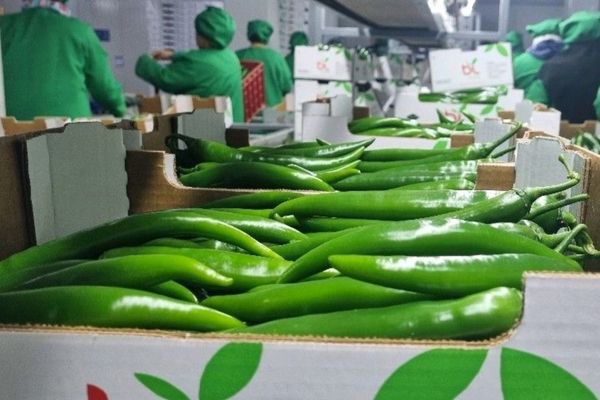The primeur (early fruit and vegetable) season in Morocco is coming to an end. Producers and exporters deplore a difficult year, marked by bad weather conditions, water crisis, general cost increases, and the prohibition to produce some products or to export others.
Asmaa Baibane, export manager of the Agadir-based packing house BL Agri, said: "In general, the agricultural year has been challenging, with acute drought and poor weather conditions. This has directly impacted the volumes of early crops, which are lower than the previous year." BL Agri exports mainly hot peppers, sweet peppers, courgette, cucumbers, and green beans to a customer base from Spain, Poland, the United Kingdom, France, and Germany.

The extent of the decline differs from product to product, from 25% across all tomato varieties to 60% in citrus. Some varieties are more affected, such as the tomatoes on the vine with volumes down 60%, or the Nadorcott that have fallen by 40-60%, according to producers' sources.
The end of the early season heralds the beginning of the summer fruit season, including watermelons and melons, but in this sector too, the season is expected to be difficult: "Watermelon production has been banned in the province of Tata, and limited to the province of Zagora, which has caused a decline in volumes for these products too."

Strong demand, however, has mitigated the losses, Baibane explains: "We have had great demand for primeur vegetables from Western Europe. The UK is also increasing its demand more and more. Because of the low supply, this has driven prices higher than the previous year."
Customers in Europe have compensated for lower Moroccan volumes with other origins, such as the Netherlands, Spain, and Turkey, Baibane concluded.
For more information:
Ms. Asmaa Baibane
BL Agri
Tel.: +212 661-060466
Email: sales@bl-agri.com
www.bl-agri.com
